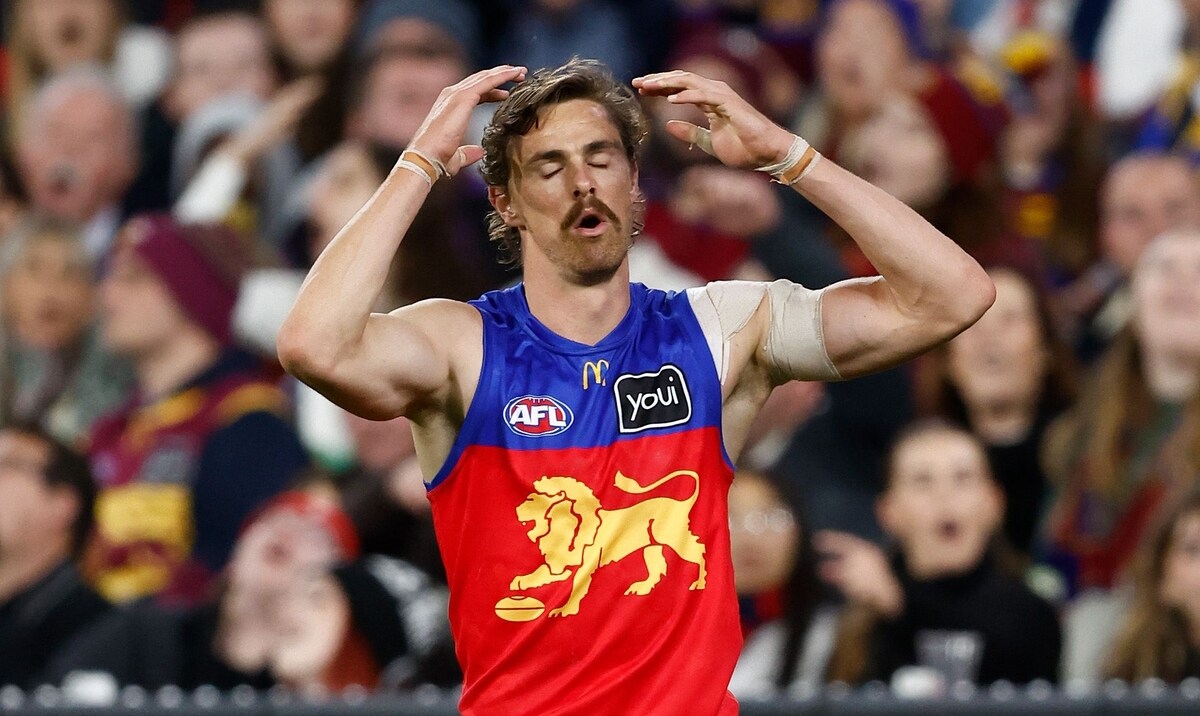
Analysis
Michael Whiting digs into Brisbane’s attacking troubles ahead of the Lions’ Anzac Day clash with GWS
JUST six rounds into the season, Brisbane’s premiership aspirations are looking a little wobbly.
As the Lions prepare to face Greater Western Sydney in Canberra on Anzac Day, they’re precariously placed at 2-4, already running out of losses they can afford and still earn a coveted top-four spot.
They’ve had a tough slate of matches, but so have others and that’s indicative of the competition in 2024.
The area that would be concerning coach Chris Fagan and his team the most is its struggles in scoring.
Last year Brisbane was ranked second for points scored after the home and away season, narrowly trailing Adelaide.
In 2022 they were also second. In 2021 they were first, 2020 third and 2019 first.
Heavy scoring has been a trademark of their streak of five consecutive finals appearances.
This year has started differently though, and with more than a quarter of the season now behind us, the Lions are ranked 11th in scoring, averaging 76 points a game.
Although the strength of the opposition and playing conditions – like Saturday night’s torrential rain against Geelong – will likely even out over the duration of a season, it’s a big enough sample to raise concerns.
Like most things in footy, it’s not just one area that is stifling Brisbane’s scoring output.
It’s certainly not from a lack of opportunity. Brisbane has the best inside-50 differential in the competition, they spend more time in their forward half than any team and they generate the second-most forward-half intercepts.
However, as statistics supplied by Champion Data show, there are many areas that would be raising red flags.
Brisbane is ranked just 15th for retaining the ball after it’s kicked inside 50, down from second in 2023. The contested possession differential inside 50 sees it ranked 13th – down from seventh last year.
The delivery hasn’t been great, but the forwards have been unable to win their contests and retain the ball. Charlie Cameron’s inconsistent start to the season has been indicative of this.
The brilliant small forward effected more tackles inside 50 than any player in 2022 and was bettered by only Melbourne’s Kysaiah Pickett last year. Currently, Cameron is ranked 32nd with seven such tackles after six matches.
Lincoln McCarthy, who has been the Lions’ most consistent contributor in the front half of the ground so far, said the scoring issues were multi-faceted.
“There’s composure when you’re busting out of traffic, or you’ve broken a tackle,” he said.
“Have we given too many handballs before we lower the eyes? Or can we give an extra handball to a guy that’s got no pressure so he can hit the entry with no pressure on him?
“It’s hard to put a finger on one specific thing because each week we see little variables.
“I’m really confident the work we’ve been doing, we’ll fix it up and hopefully we can show that rather than talk about it.”
Brisbane is ranked 15th for scores per inside 50 percentage and 18th for goals per inside 50.
Then there’s arguably the most important statistic in the game – conversion. Only two teams have a worse shot at goal accuracy.
Of the Lions’ noted forwards, Eric Hipwood (nine goals at 47 per cent), Kai Lohmann (four at 44 per cent), McCarthy (seven at 44 per cent), Joe Daniher (12 at 43 per cent), Cam Rayner (three at 43 per cent) and Cameron (eight at 33 per cent) have all had troubles with their radar.
Brisbane showed in its wins over North Melbourne and Melbourne that the scoring power was still there, but a combination of inconsistent delivery, forwards not winning enough contests and poor goalkicking have ensured the output has been well below previous seasons.
There’s still plenty of 2024 to go, and rectifying the above against the Giants would go a long way towards getting the campaign well and truly back on track.













